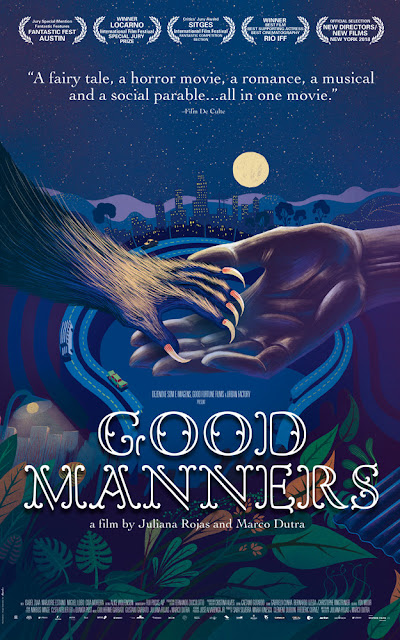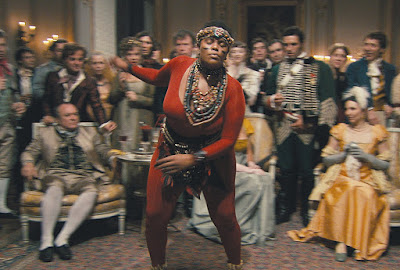I remember seeing KANSAS CITY at the time of its original theatrical release (1996) and enjoying it a lot. Yet viewing it again, in a glorious new Blu-ray transfer from Arrow Academy, it seems not simply very good but up there with its director and co-writer Robert Altman's best films.
So why is this remarkable movie so little know or even much talked about anymore? I suspect it has to do with how little, style-wise, the movie resembles so much of the other work for which Altman, shown at right, is now most remembered. By style, I mean in particular this filmmaker's much vaunted use of over-lapping dialog, together with the so-much-going-on visuals that have you scanning the screen, ever alert to what to watch and to whom to listen as the movie moves ahead.
No. This film, by conventional standards of Altman's work (if the word conventional can even be used here), seems almost traditional. Aside from a clever opening taking place in two time frames that soon come together (as well as coming clear), the film moves forward with the plot unfurling and characters developing, just as in so many more standard movies.
The movie begins with a kidnapping of one woman by another, the reason for which only slowly comes clear. These women are played by Jennifer Jason Leigh (above, as Blondie) and Miranda Richardson (below, as Carolyn), each of whom is as good here as she has ever been. Their story is front and center, and their characters are wonderfully written (by Altman and his four-time collaborator Frank Barhydt) and beautifully acted by the two women, whose relationship grows oddly closer as the film progresses.
Simultaneously, Kansas City is a love story -- fueled by Blondie's love for her guy, a good-looking nitwit named Johnny, played with brainless charm by Dermot Mulroney, below -- and a non-love story in terms of the relationship-of-convenience between Carolyn and her husband, an ex-politician now working for President Roosevelt (Michael Murphy). The tale unfurls on and around election day, as the local Democratic candidate is jammed through via everything from voter fraud to cavalier murder.
Blondie's Johnny has stupidly planned a robbery of a rich gambler that goes awry but brings in the man who own the gambling house (a nifty Harry Belafonte, below, essaying a role unusual for him). How all these plot strands bounce off each other, finally coming together in a manner that is shocking, horrible, inevitable and completely understandable. It will leave you satisfied and musing, I think, on exactly the subjects Altman wants you to be considering, even as you are impressed all over again with what this great filmmaker could accomplish.
Kansas City is a violent film, but never unduly so, with that violence ranging from the merely casual to the grizzly. Yet it all seems appropriate to the period, the locale, and the situations, while the writer/director's take on race in particular is strong and true for this time and place.
In addition to all of the above, Kansas City boasts some wonderful music -- jazz of the day played right and real -- taking place in the club owned by the Belafonte character. As critic Geoff Andrew tells us in the excellent, newly-filmed appreciation of the movie that is a part of the Bonus Features on the disc, this was perhaps the most personal of all of Altman's work, in so many ways, and the filmmaker's attention to detail in every aspect comes through quite beautifully.
TrustMovies believes this new Blu-ray release will help place Kansas City much higher in the canon of Mr. Altman's oeuvre. It should attract both his die-hard fans for a re-look, while garnering a bunch of new ones, too.
From Arrow Video, distributed here in the USA via MVD Visual/MVD Entertainment Group, the film made its Blu-ray debut last week -- for purchase (and I hope, somewhere, rental).





























































